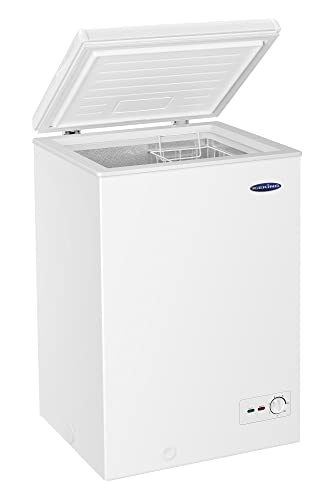How to Keep Your Fridge Running Smoothly
Fridges come in a wide array of shapes and sizes. They can be tucked away in tight areas, like dorm rooms.
Certain models are compatible with smart devices. They allow you to monitor your fridge remotely and troubleshoot any problems that may occur. You can also control them using voice commands.
Noise
Fridges make a wide range of sounds when they are operating. Some of these sounds are more noticeable than others. Before calling a refrigerator repair service, you should determine the source of any noises you hear.
Rattling
The rattling of the fridge can happen when there’s no space between the fridge and wall or cabinet, or fridge Freezer for sale if it’s positioned at an unbalanced angle. This is easy to fix – all you have to do is ensure that there’s at least a few inches of space between the sides and then adjust the fridge legs or leveling screws to lower or raise it according to.
Hissing
The compressor can make a noise when cooling your food. This is a normal sound that is caused by compressor fluid or refrigerant moving through the system. If you are worried be aware of the frequency at which the compressor cycles. Contact a repair service immediately when this occurs more frequently than normal.
Squeaking
Refrigerators can be noisy when their fans or coils are dirty. If you hear a squeaking sound coming from your fridge, use a vacuum cleaner brush attachment, a rag, and dish soap or water along with warm water to clean the fan and coils. It is important to clean the fridge twice a year or more frequently if your fridge is older or used heavily.
Clicking
A clicking sound can also be heard from a refrigerator. It is usually due to freezing around the fan of the freezer. Manual defrosting can solve the problem but it could recur in the event that a professional is not called to assist.
If you hear clicking, turn the refrigerator back on. If you have an ice maker attached, this sound can be caused by it. Be sure to turn it off when are not using ice constantly.
The hum from your fridge is normal, but it may be louder during certain times of the day, or after large stockings or intensive freezing operations. The refrigerator is working harder to keep your food cool, so it will work more quickly. This isn’t an indication of an issue.
Dust
Household dust attracts dirt bacteria and other microorganisms, as well as traces from daily exposures to chemicals in the home. The tiny particles can trigger allergic reactions and inhalation, and they are an ideal surface for microbes, which includes those that may cause an infection when they come into contact with an open cut.
Cleaning a refrigerator isn’t easy but regular cleaning can help to reduce dust and keep an even temperature. A dirty Fridge Freezer Deals (Www.Woojinlocker.Co.Kr) wastes energy due to overheating, and is inefficient. If you suspect that your fridge is making louder noises than usual, or if it’s wasting power by overworking itself It’s probably time to call in the professionals.
Dust doesn’t float into the air from outside as is often believed. It contains resuspended soil from the house that is often contaminated with lead and other toxicants in addition to pollen, mold spores and car exhaust. It also retains pollutant residues from the past, such as DDT which were banned more than half a century ago.
Certain compounds, like flame retardants, such as decabromodiphenylether are able to volatilize and enter the air, however the majority of chemicals in dust from homes are transferred from one object to another for example, by throwing fibers and tiny bits of plastic off of electronic equipment. High-molecular-weight substances, such as surfactants used in cleaners and paint strippers, also migrate directly into dust.
A dusty refrigerator can negatively affect your health, in addition to the food you eat being contaminated. It can harbor allergens like pet dander or cockroach droppings that can cause asthma attacks and allergic reactions. It also contains bacteria spores, such as staphylococcus.
Researchers have found that contaminated dust can be linked to a broad range of health problems that include cancer, cardiovascular disease, leukemia and inflammatory bowel disease. A recent study found that the homes of children with leukemia were more likely to have higher levels of polycyclic aromatic hydrocarbons the PBDEs, and PCBs in their dust than the homes of healthy kids.
Condenser Coils
If refrigerators are operating correctly, the coils on the front and back of the appliance should be able to dissipate the heat generated by the compressor. But when these radiator-like parts are covered in pet hair, dust, or lint, the compressor will work continuously trying to cool the fridge and ends up wearing down the appliance. It is important to keep your coils clean.
If you’re planning to do the work yourself it is recommended you unplug the refrigerator from its outlet and switch off the power source before beginning. This will lower the chance that you or your family may be injured by electrocution while working on the appliance. It is also recommended to wear a protective mask if you are sensitive to dust. You will then need to find the coils. These are typically at the rear of the fridge or at the front across the base in some units. Consult your fridge’s manual or contact the manufacturer if you don’t know where they are.
Once you have found the coils, you’ll need to remove the access panel, if there’s one and then alternate between vacuuming the coils using an attachment for a narrow hose and rubbing them with a condenser brush to clean the coils. It is essential to take your time while doing this so that you don’t bend or damaging the coils. Replace the kick panel or push the refrigerator into position, then plug it in.
If you aren’t comfortable doing this by yourself, you could always seek out an expert. It’s cheaper and less trouble to keep up with the cleaning routine to avoid the issue from happening in the first place.
Maintenance
Refrigerators are tough-working appliances that are running all day and at night to cool your food. They require regular maintenance to ensure they do their job effectively. Simple preventive maintenance can keep your machines running smoothly for a long time.
Wipe down the door seals. The gaskets may become blocked by jelly and other food items that stick and allow cool air to escape through tiny gaps. Clean them using a mixture of baking soda and warm water on a toothbrush or sponge every few months.
The fan at the rear of the refrigerator is a different spot to check. It can become noisy when it’s blocked by paper, insulation or even a mouse (gasp). Unplug the fridge, take out all shelves and then take out any parts that are removable. Vacuum cleaners equipped with hose attachments can be used to clean the coils as well as the area surrounding them. Be sure to turn the fridge back on after you’re done.
It is recommended to consult the owner’s manual for specifics about where to find the fan and coils and what cleaning tools you may require. You should also review the warranty to be sure you are aware of the coverage.
